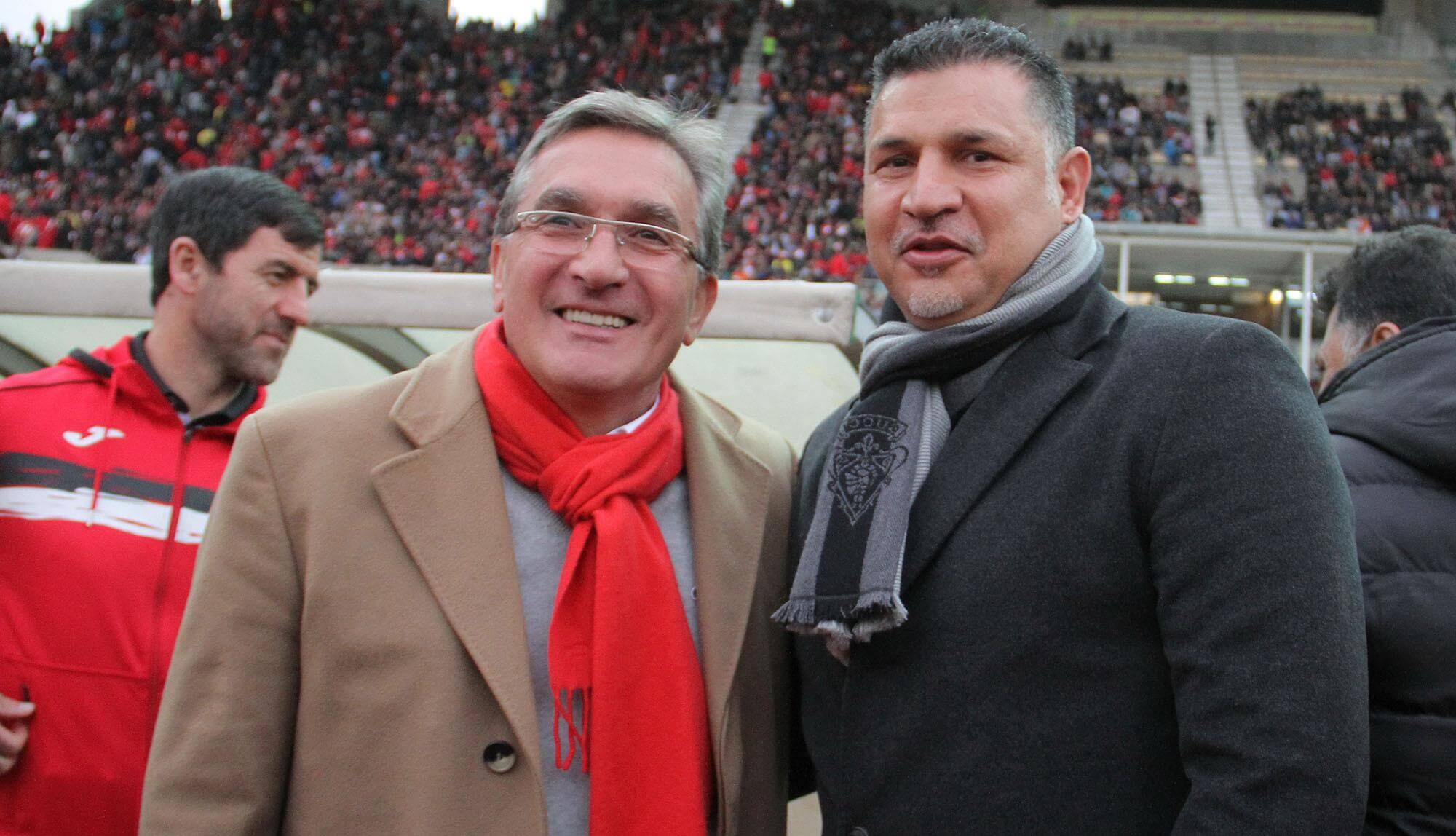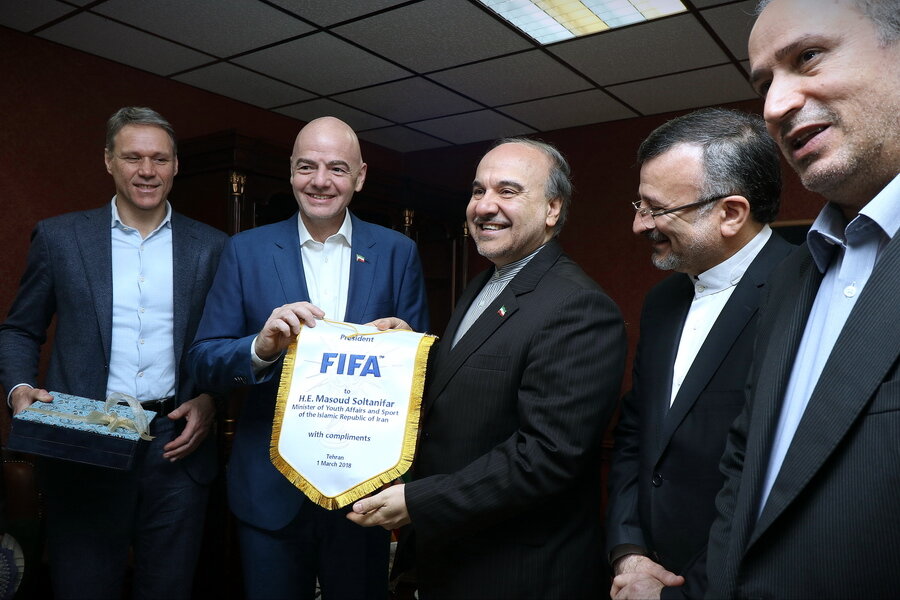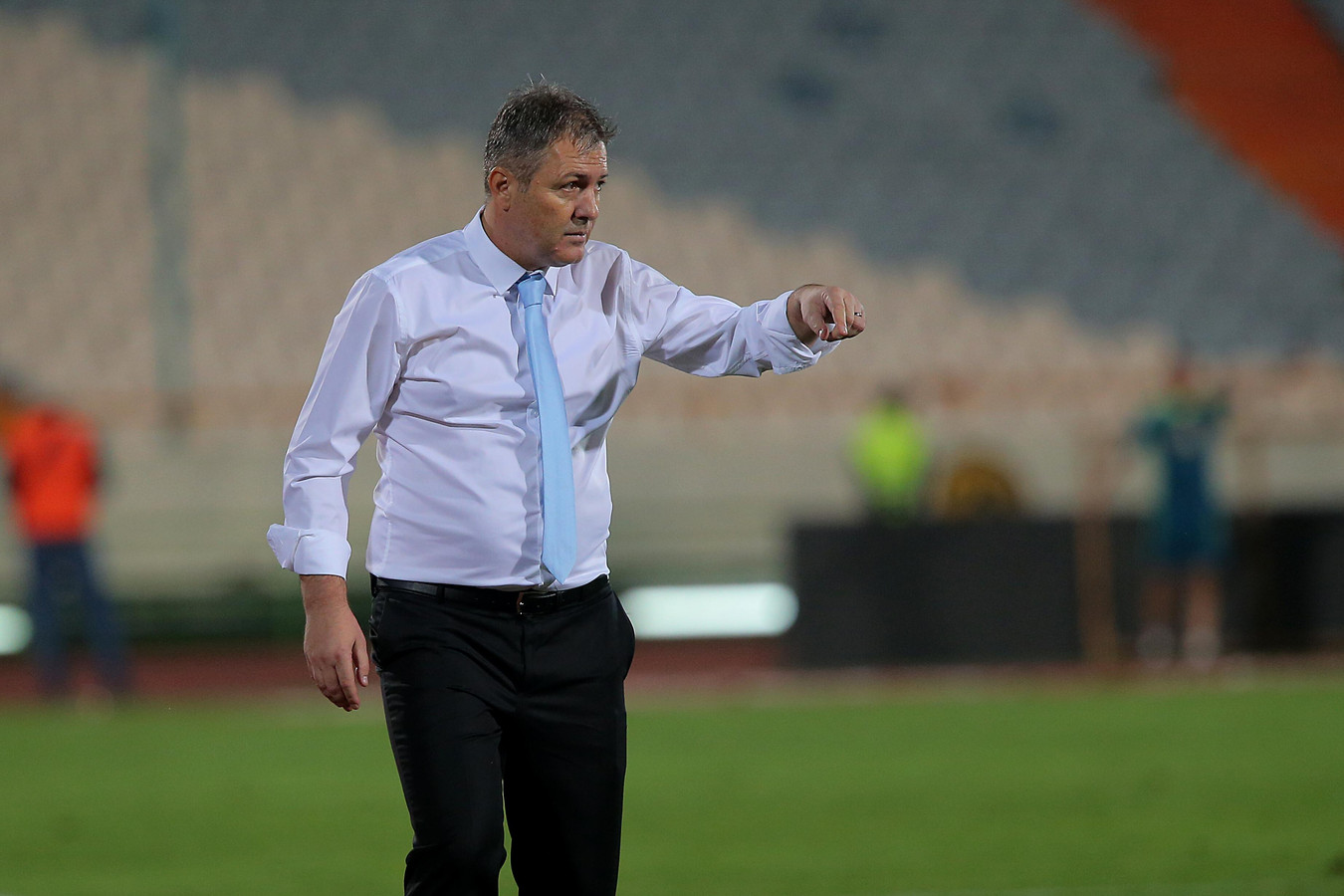The saga of Team Melli head coach is over by the eventual appointment of an outsider for the hot seat. The Croatian, Dragan Skocic with a thin CV way below the last coach who floundered badly, namely Marc Wilmots, was deemed to be the right man for taking Iran to the third consecutive FIFA World Cup appearance.
The whole saga was filled with politics, lobbying, drama, deceits, theatrics, and unfulfilled promises. While the FFIRI was unwilling to repeat the experience of Marc Wilmots in the sense that they had difficulty paying him and his crew on time and the fact that FFIRI is facing financial calamity with expenditures far exceeding revenues. With that in mind, FFIRI opted to go for the cheaper and easier option of appointing a local coach. That said, a foreign coach was never discounted.
The Candidates
From the corridors of FFIRI, there were 5 names on the list of Team Melli coaching candidates. Ali Daei, Amir Ghalenoei, Yahya Golmohammadi, Hossein Faraki and Alireza Mansourian. Two other candidates, Majid Jalali and Vahid Hashemian were also considered but soon relegated to lower ranks.
As always, Ali Daei was the top of the list. He was out of work and available immediately. However, Daei comes with a lot of heavy baggage. He is a strong character and outspoken. He does not tolerate incompetence and poor management and will speak his mind out loud no matter who is in charge or how strong he is. Simply, no one can fool around with Daei and for an entity such as FFIRI and the way it is being run, this is precarious. The hierarchy demands strict allegiance, loyalty, and conformity without too many questions. Simply, this administration could not handle Daei.

Amir Ghalenoei was the obvious choice and the one with most technical points. His achievement in coaching in Iran is immaculate. The man is a winner, not by opinion or belief but by facts and figures. It made the best sense for him to lead Team Melli. Nevertheless, Ghalenoei is massively occupied with a battle to win his 6th championship title and his club, with a strong lobby and influence in Tehran, was vehemently refusing to release him at this stage. Not only Ghalenoei is popular with the players and the fans and has a strong challenge for the league title, but he is also so quite determined to make a great run in the AFC League Champions which has so far eluded him.
Yahya Golmohammadi’s fate was known early as Persepolis managed to grab him early before the battle intensified.
The other two, Faraki and Mansourian were always considered outsiders despite both having previous coaching experience, while Hashemian was considered far too inexperienced and partially blamed for the defeats of Team Melli against Bahrain and Iraq. Jalali never had much clout or support in Seoul street.

As far as the Foreign candidate goes, the one and the only Branko Ivankovic was on the top. The ex-Team Melli coach was even considered for the job while Carlos Queiroz was in charge. Ivankovic is quite popular in Iran and accepted by both the fans and the authorities as a decent person and technically gifted leader. He would be the ideal candidate to lead Team Melli. However, the maltreatment of Persepolis management and their false promises to sort out their contractual obligation was the biggest factor for Ivankovic to turn down the offer despite him giving the Iranians the chance to display goodwill by sorting the pack pay of his Persepolis days.
Failure of Persepolis to pay his unpaid dues was the final straw, leaving the Croat no choice but to turn down the lucrative Tea Melli job.
The Italian Di Biasi popped out of nowhere in the news for a few days and despite the Iranian side denying any negotiation, the ex -Albania National team coach did not agree terms with the Iranian side.

The Battle between FFIRI and Ministry of Sports
While FFIRI, particularly its President was going through the process of Team Melli coach selection with those 5 local candidates in mind, the Ministry had its own plan. A Ministry official not so long ago stated that the future coach will be a foreigner while not totally dismissing a local coach appointment. This non-official point of view was not in itself of any significance, but its importance would be meaningful when the appointment was finalized.
A foreign coach was indeed appointed which signified who is taking the decision on Iranian football affairs. Major decisions relating to all activities of football are outside the control of the FFIRI, its President, the secretary-general, the Technical Committee or the Disciplinary committees. The FFIRI personnel are all pawns and do the routine trivial works were their decisions and outcomes have no effect on politics or major effect on public opinion.
The De Facto policymaker of Iran’s sports including football is Minister of Youth and Sports, Masoud Soltanifar, who has the final say in what is deemed important and issues vital rulings. If anyone, including the elected President of Football Federation of the Islamic Republic of Iran FFIRI, opposes policies or rulings, he can be dealt with one way or another.
Dragan Skocic was an outsider and the easiest choice. The Croat would have seen this as a big career challenge and very much significant improvement in his CV while he was fed up with his employer Sanat Naft and ready to jump ship.
The grand Decision Maker.
It is no secret that the government has been and continues to control football affairs. They own the clubs, appoint the CEO, directors, provide financial support and make decisions. Although the football federation operates and conforms to the international law of football and the governing body FIFA, in Iran, such rules are easily bypassed by a clever set of unwritten rulings.
What is seemed to look like the election of President and board members of the Federation is nothing like what it seems. There are merely appointments dressed in a form of election. The candidates and nominees are all government-affiliated, ex-employees but more significantly have played a role in the Sepah, Basij or IRGC. Football knowledge, competence, ability, and managerial skills are hardly a priority for the regime.
It is no clear what motives the Minister of Sport had on preferring a foreign coach, however, the speculation is that it is perhaps based on general public sentiment who prefer a foreign coach as a result of a good run for Team Melli under Queiroz.
Why a foreign coach?
The problems Iranian football had with foreign coaches are well documented and known to all stakeholders. In summary, it is about 3 factors, the first and the most important is the inability of the clubs to transfer money through the international banking system, second is the lack of professional discipline by the clubs resulting in conflicts and contractual disagreements, and last is the communication difficulties including cultural awareness of the foreigners that put them in a disadvantage compared to a local.
None of those three factors can go away anytime soon in Iran so the reason(s) behind insisting on a foreign coach must be more on the political side rather than technical. Although the Ministry of Sports had its own motive to decide on a foreigner leading Team Melli, most probably based on non-football related factors, in hindsight this could be the right decision.
No one can deny the technical ability of Daei and Ghalenoei the two front-runners for the job. However, Iranian coaches have this social stigma attached to them that is very difficult to absorb at the international level. Always diverting blame, always pointing fingers at others after defeats and failures, always the antagonists and confrontational and finally, dogmatic and inflexible unwilling to change their ways and plans despite failures.
For the authority, they are also risky because they can easily raise public anti-establishment emotions after defeats by Team Melli. Eventually, they all blame the system, something that the regime fears the most and has lead to several uprising and riots.
The Losers and the Winners.
LOSERS
FFIRI : A Bystander executing the orders of the paymaster
Ali Daei: Unfairly and deviously ousted by a regime who is fearful of his influence on masses
Hossein Faraki: His recent lack of success hurt his reputation and stands quite badly
Alireza Mansourian: A coach who is burnt early by consecutive lack of success and not appreciating his limitation.
WINNERS
Dragan Skocic: A dream post for him. Never considered a top coach and lack of success did not indicate that he is anywhere near taking such a mammoth task. He can really endear himself to all and do his CV a lot of good if he manages to take Iran to the World Cup 2020
Sanat Naft: An immediate compensation the value of US$ 170,000 for releasing Dragan Skocic from his contract. Money which is much needed to pay expenses and perhaps buy one or two players to strengthen the squad.
Sepahan Esfahan: Not willing to part with their coach who is challenging for the league title yet they had enough clout to say NO to the Minister and keep their much-sought-after coach.
Amir Ghalenoei: Has been there and done that. Ghalenoei who coached Team Melli in 2007 and experienced the hardship of coaching at that level with so many high expectations, was never too enthusiastic about taking the job again. Despite his desire to be seen as patriotic, whenever he was asked by the media about the job, he denied any offers and did not indicate that he was willing to leave his club Sepahan which was on a good run under his leadership. He is also looking to change his luck this season in AFC Champions League as a strong challenge for him.

